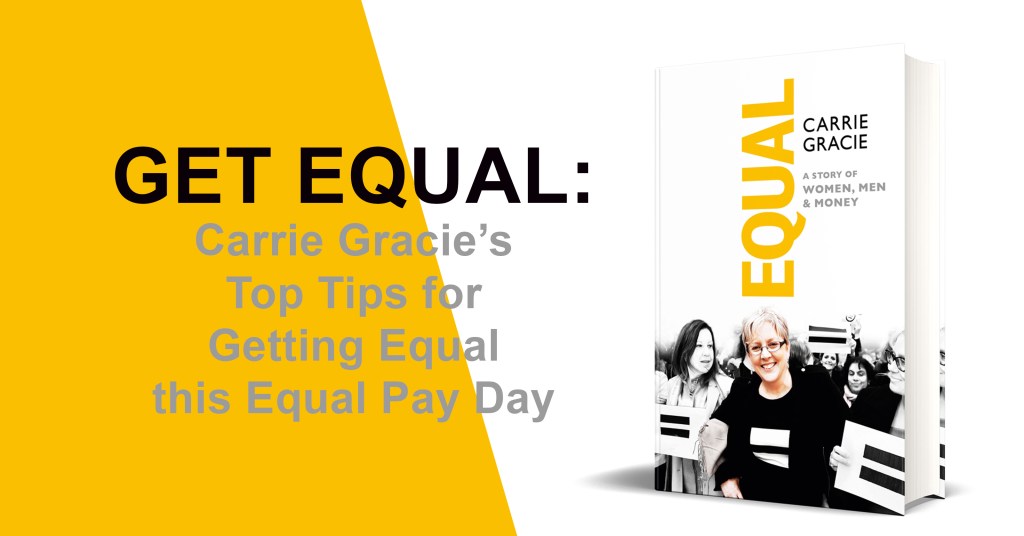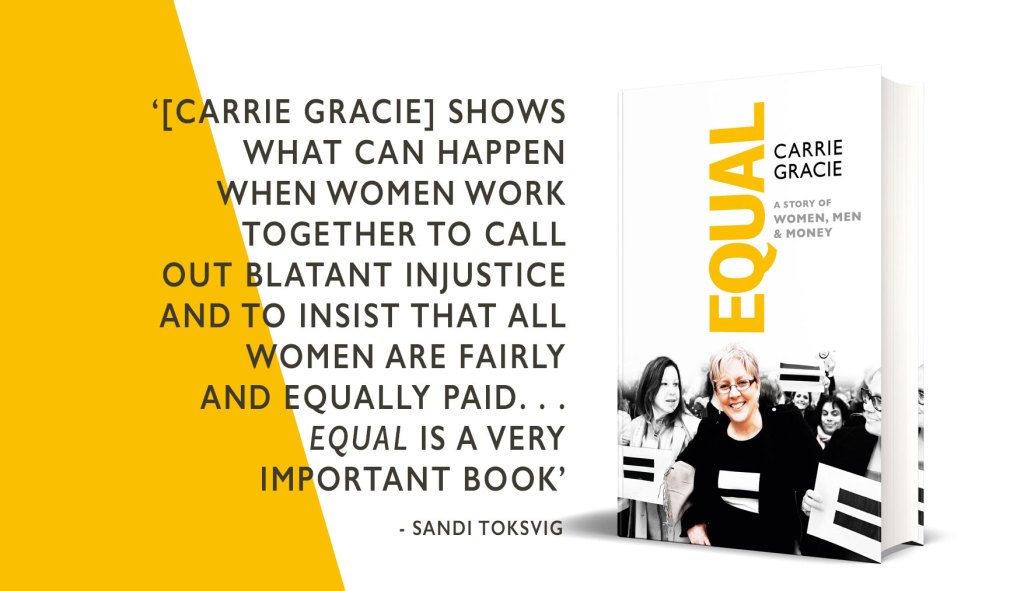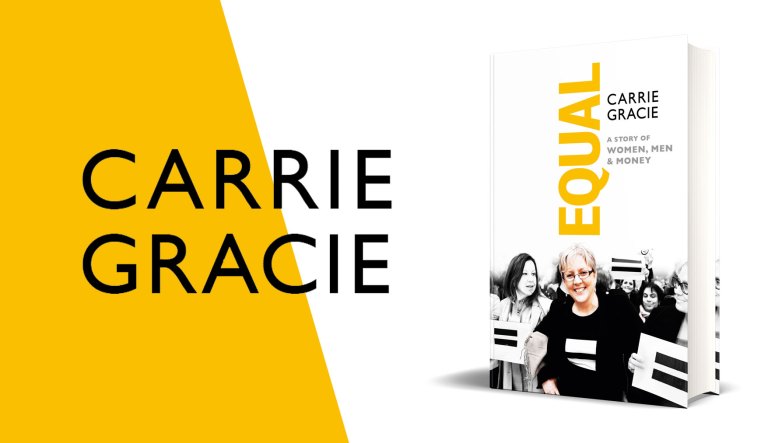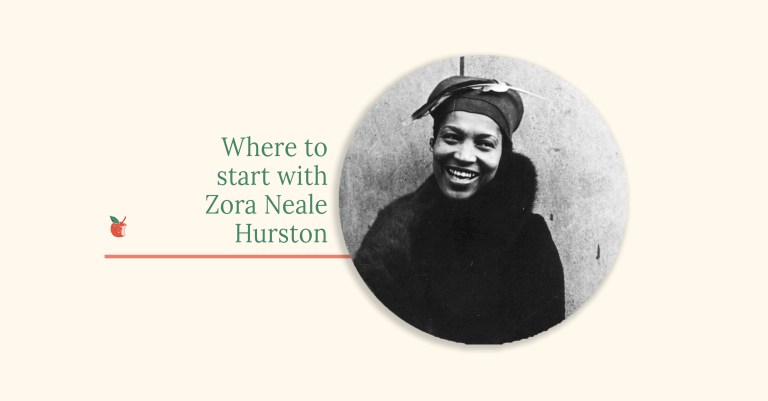Get Equal with Carrie Gracie


New gender pay gap data finds that women continue to earn less than men, on average, in Britain today. The most recent statistics from the ONS’ Annual Survey of Hours and Earnings – published today – show that the mean gap for full time workers is 13.1%. Equal pay may have been the law for half a century, but women often get paid less than men, even when they’re doing equal work. Mostly they don’t know because pay is secret. But what if a woman finds out? What should she do? What should her male colleague do? What should the boss do? Here we share BBC journalist an author Carrie Gracie’s top tips for getting equal this Equal Pay Day.
PRACTICAL
- Acknowledge any inhibitions you have in talking about pay
- Be patient with those who don’t want to discuss their pay
- Remind yourself that every pay negotiation counts – always try to represent yourself to the best of your ability
- In any pay discussion take notes at the time or immediately afterwards and share promptly
- Give any new boss an up-to-date copy of your CV so they know what skills you offer or may take to a rival
- Take performance evaluations seriously. Keep a running list of things that might otherwise go unnoticed but that still add value
- Discuss these with your boss and check whether they are reflected in your pay. Talk about how you’d like to advance. If you have a specific pay rise in mind, say so.
- Support your case with as much data as you can muster
- Allow your boss time to respond and don’t expect an answer on the spot
- If this conversation doesn’t initially go to plan, don’t be impatient. Be proud of yourself for making a start
STRATEGIC
- If you work for a large UK employer, read its gender pay gap and ethnicity pay gap report. Note whether they have a concrete plan to narrow or close the gaps. Offer ideas. Observe how these ideas are received
- If and when you raise the issue of unequal pay with your employer, choose your moment carefully. Winning demands the self-discipline to fight only when you’re ready
- Take a look at the people who run your organisation. Do they like you? If not, does anyone in the management chain look like you – whether on gender, ethnicity, sexual orientation, disability, age or socioeconomic status? If ‘success’ in your organisation never looks like you, does your organisation notice or care?
- Use your gender discrimination to sensitise you to other forms of structural disadvantage. There may be people in your workplace facing discrimination on grounds of ethnicity, disability, age, class or sexual orientation
- If your organisation suffers from entrenched patterns of discrimination but you feel like you can’t move at present, ask yourself what a plan B would look like and how soon you can put it into action
- Don’t ever allow yourself to internalise disrespect or biased evaluation of a discriminating employer. If you can’t speak your truth to your boss, speak it to yourself, your colleagues, your friends nad family. Get it into the world.
- If and when you make an equal pay complaint, be ready for a boss to suddenly find your performance wanting. Try not to take this personally. Remember that when it comes to demanding gender equality, you are in a long line that stretches back to the early feminists and forward to your granddaughters. Grasp your moment in history. If your employer says the man at the next desk is worth more than you, hold your ground and suggest that they prove it
- Press your MP for new legislation
- Take control. Aspire to run your workforce, your union or your government. Run your own company and run it equal.
STRONG
- If you intend to make change from the inside, sister up. Solidarity is a vital force multiplier. Start by noticing the talent and work of other women. Stay alive the ways that unacknowledged competition can erode female solidarity
- If you’re not in a union, join one
- Talk to female colleagues about structure factors that underpin gender pay in your workplace
- If your workplace doesn’t have many women or if its culture is very competitive reach out to other women in an occupational network or union. Find ways to be less alone
- If you start a sisterhood on a messaging app, keep it safe, legal and polite. Arguments within safe boundaries can build trust and make you stronger
- If your confidence falters bring to mind powerful women: Serena Williams, Millicent Fawcett, Emmeline Pankhurst, Taylor Swift, Rosa Parks
- Know that feminism is a long game. It was here when you were born and it will be here when you die. You can only play your part. So don’t get rigid in warrior pose and don’t let fighting swallow your life. laugh at it all whenever possible. Laughter makes you brave
RESOURCES
In a matter of minutes . . .
Watch the capuchin throw her cucumber to remind yourself that even monkeys abhor injustice:
https://www.youtube.com/watch?v=L2ui97YPPsg
Watch the sweet jar redistribution to see that children understand equal pay:
https://www.youtube.com/watch?v=snUE2jm_nFA
Start identifying your own inbuilt biases by taking a few short tests:
https://implict.harvard.edu/implicit
Key Resources . . .
–
https://www.equalityhumanrights.com/en
The Equality Human Rights Commission website is a rich source of information and advice for women and their employers alike.
–
https://www.acas.org.uk/index.aspx?articleid=1461
The website of the Advisory, Conciliation and Arbitration Service has a lot of information about navigating the workplace. For those in the UK, Acas can also help you with specific advice on grievances and equal pay claims through its online help tool and its telephone helpline.
–
https://www.fawcettsociety.org.uk/equal-pay-advice-service
The Fawcett Society campaigns for gender equality every day in every way. And since November 2018, it has been working in partnership with legal charity YESS Law to offer free legal support to women on lower incomes facing unequal pay.
–
Makes you think . . .
I’ve learned so much from other writers. Some books I’ve already mentioned, but here are more that broadend my mind:
Slay in Your Lane: The Black Girl Bible by Yomi Adegoke and Elizabeth Uviebinene
The Guilty Feminist: From Our Noble Goals to our Worst Hypocrisies by Deborah Frances-White
Equal Pay: Law and Practice by Daphne Romney, QC
Why I’m No Longer Talking to White People About Race by Reni Eddo-Lodge
Work Like a Woman: A Manifesto for Change by Mary Portas
Brit(ish): On Race, Identity and Belonging by Afua Hirsch
Grace and Grit: My Fight for Equal Pay and Fairness at Goodyear and Beyond by Lilly Ledbetter
And because it’s worth remembering that we stand on the shoulders of giants:
A Vindication of the Rights of Women by Mary Wollstonecraft
China
To close this list of resources, something personal. An equal pay battle is all about the value of a woman’s work, and I fought for my China work. At the point of resigning my post as BBC China Editor, I created a website with some of my favourite pieces. It also celebrates the great BBC team who made that work with me.







